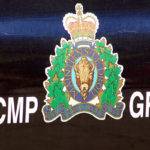Home »

Learning on the river
Columbia River Field School takes youth on 11-day adventure
Earlier this month, 16 inspiring Columbia Basin youth grabbed their paddles and navigated the complex social, economic and natural history of the mighty Columbia River through Wildsight’s new the Columbia River Field School.
The 12-day Field School brought together participants from seven Columbia Basin communities. The participants began their journey with the Ktunaxa creation story, told by Akisqnuk Chief Alfred Joseph at the river’s headwaters at Canal Flats. As they traveled through Columbia Lake and the Columbia Wetlands, Kinbasket Reservoir, the Revelstoke area, Lower Arrow Lake Reservoir and the confluence with the Kootenay River at Castlegar, participants learned from local expert voices as varied as the river itself.
“I can easily say that this experience has been life-changing for me,” says Field School participant, Ali Giesbrecht from Cranbrook. “It has helped me begin to understand the land around me, people and their differences, the ways of river travel and how I can be my best self. I have made life long connections with these new people and an even deeper connection with the land than I had before.”
Twenty-one guest speakers met the Field School on both land and water, encouraging participants to think and ask questions about the Columbia River Treaty, dams, reservoirs, electricity generation and their ecological and social impacts. Some of the speakers came from First Nations, local and Provincial governments and some were independent experts; they were ecologists, hydrologists, biologists, adventurers, artists and writers.
Some of the highlights included a group paddle with Shelley Boyd, a Sinixt spokesperson in a traditional sturgeon-nosed canoe and her friends, as they made their way through the locks at Hugh Keenleyside Dam; hearing from an incredible panel of experts during a day-long symposium about youth engagement and the future of the Columbia River at Selkirk college; a silent paddle through the world renowned Columbia Wetlands and exploration of wetland “muck” with Dr. Suzanne Bayley; and a tour through the Revelstoke dam by BC Hydro staff.
“We are so grateful to have had the opportunity to share the journey with so many articulate, committed and generous individuals, all inspired by their passion for the Columbia River,” says Monica Nissen, Wildsight’s Education Manager. “The students came away with an understanding of the complexity of the many issues— ecological, social and economic—that are inextricably linked to this river and this watershed. It was learning that was real, lived and felt—it was place-based learning at its best.”
The Field School also included a discussion about returning salmon to the Columbia River with Ktunaxa Nation biologist Will Warnock; a session on human and non-human forces of change on river ecosystems with Annette Lutterman and Larry Nolan; learning about bird identification and the power of citizen science with Rachel Darvill and hearing a first-hand account of land expropriation and its impact on local farmers with Janet Spicer.
Field School participants were guided and instructed in canoe skills by Grace Broadfoot and Roger Warnatsch of Greenwave Canoeing and earned their Lakewater Level 1 and Canoe Tripping Paddler certifications from the Recreational Canoe Association of BC. This included important canoe tripping and camping skills like reading maps, packing, cooking, setting up camp and leave no trace practices to minimize their impact on the land.
“The Columbia River Field School was a transformational experience for all involved—students, leaders and guest speakers alike,” says Wildsight’s Field School Coordinator, Graeme Lee Rowlands. “To learn directly from the land and its people, to mix intellect with experience, to think critically but speak from the heart: this is what education should be about. I am confident that this adventure will send ripples of inspiration across the Columbia Basin and beyond for years to come.”
“Wildsight thanks Mountain Equipment Co-op and Columbia Basin Trust for making this program possible,” adds Nissen.
Wildsight







